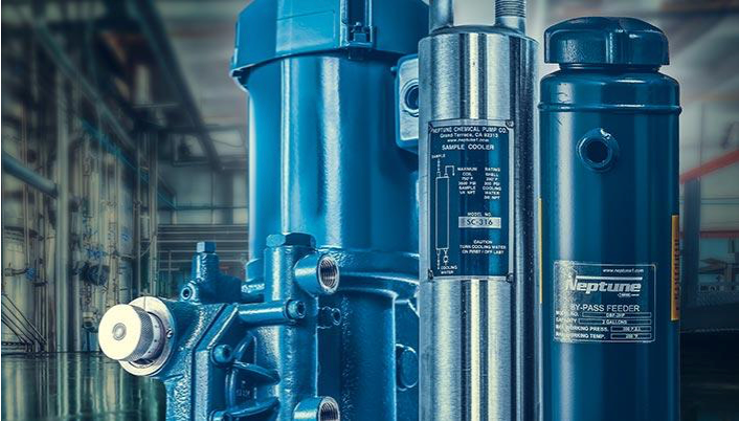Ideally, boilers should operate as simply as, well, boiling water. It should be a straightforward process where water is boiled to produce steam, and that steam is then used for energy. Unfortunately, things aren’t always as simple as they seem. In fact, for boilers, a number of challenges can complicate an operation.
The primary concern for a boiler is the quality of the water. Even the highest quality of feedwater contains chemical impurities – magnesium, calcium, iron, aluminum and silicon – that can affect the boiler's integrity. As time goes by, these impurities accumulate into scale buildup. The problem is only complicated by the corrosive gasses created by dissolved oxygen and carbon dioxide damaging the boiler and surrounding equipment. The scale buildup along with the corrosion reduces the rate of steam generation and eventually leads to boiler failure.
The negative effects of impurities in feedwater can be greatly reduced by implementing an effective water treatment plan. Like fighting fire with fire, the most effective method for handling chemical impurities in feedwater is to use other chemicals. The chemicals used in boiler-water treatment include coagulants, phosphates, oxygen scavengers and chelants. Because of the delicate nature of these chemicals and their ability to adversely affect the quality of the water, these chemicals need to be precisely injected into the boilers. With metering pump technology, operators can confidently dispense the appropriate amount of chemicals at the right time.

Hydraulically-actuated diaphragm metering pumps and solenoid-actuated diaphragm metering pumps are two of the most effective pumping technologies. Hydraulic metering pumps have a repeatable accuracy of +/- 1% that makes them ideal for operators needing to consistently and constantly dispense chemicals precisely while operating against high discharge pressures. They are customizable metering pumps that can be constructed from different materials and be outfitted with various motor configurations in order to meet specific application requirements.
For boiler-water treatment, solenoid-actuated pumps are an economical choice that offers +/- 3% accuracy. Some of these electronic metering pumps provide high stroke rates for improved chemical injection during low flow rates. Similar to hydraulic metering pumps, these electronic pumps are available in a number of different materials that offer the versatility needed for various chemical-injection applications.
A different option for treating boiler water are filter feeders. Because of their dual-functionality, filter feeders are becoming considerably more common in water-treatment applications. Operating as a single piece of equipment, filter feeders use a filtration bag that is able to inject chemicals while simultaneously capturing water impurities.
Regardless of the method, whether it be hydraulic metering pumps, electronic metering pumps or filter feeders, it’s important for operations to implement an effective boiler-water treatment plan to eliminate the risk of causing irreversible damage to boilers. Because even the simplest of processes can come with a number of challenges, Neptune offers a variety of water and wastewater solutions, including hydraulic metering pumps, mechanical metering pumps and electronic metering pumps that provide quality, accuracy and precision for boiler applications.
To learn more about the best metering pump for boiler-water treatment, read the article: Selecting the Right Metering Pump for Boiler-Water Treatments.